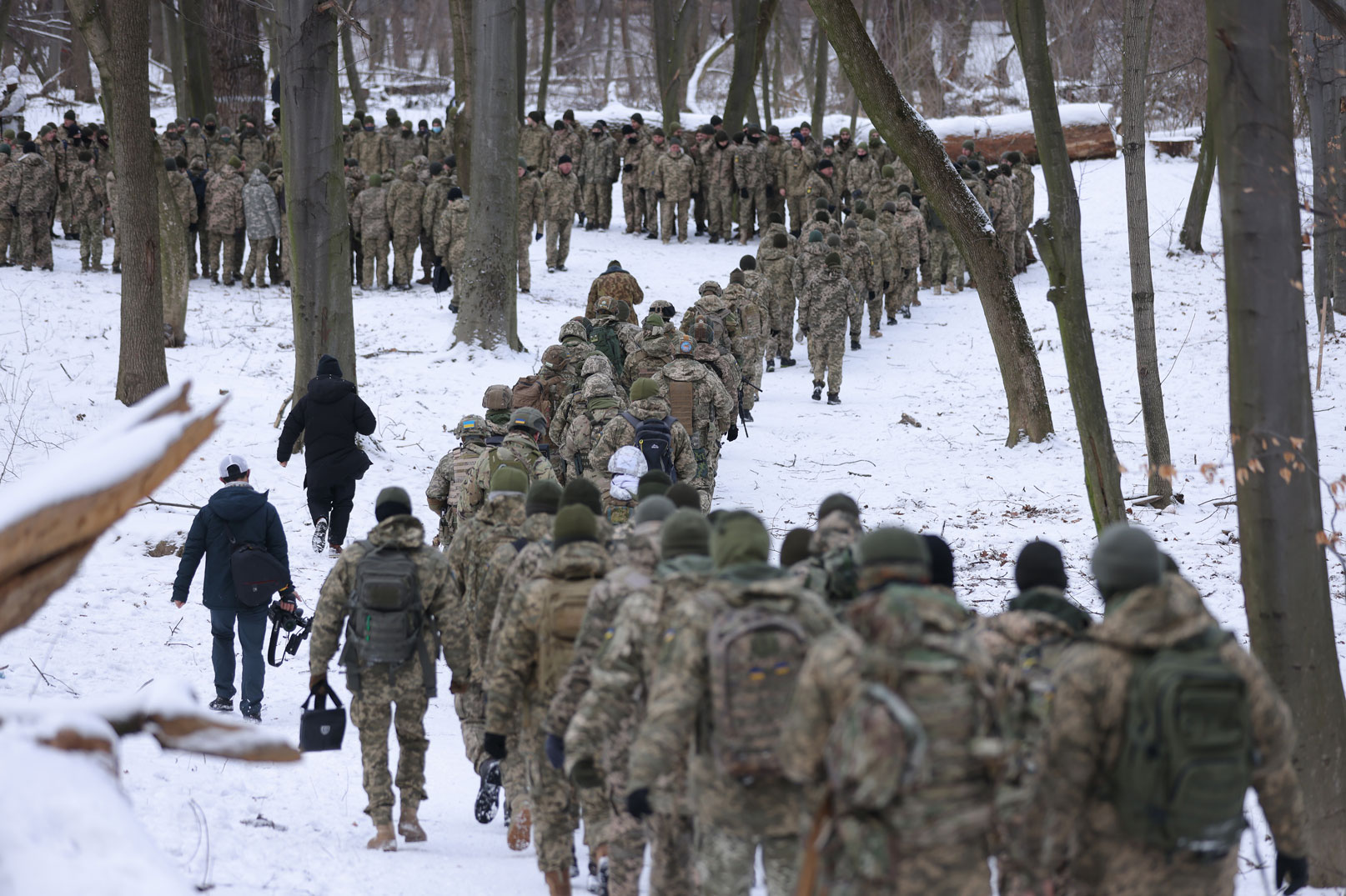Walking through central Kyiv’s abandoned streets, the barren city feels more like a ghost town than a vibrant metropolitan European capital. Ever since Russian President Vladimir Putin launched his naked war of aggression on Ukraine on Feb. 22, life has vanished from this city.
Bars, shops, 24-hour fast-food chains, transport networks and banks are all closed; doors are shuttered, and windows are taped up with plastic trash bags to catch the glass in case of explosions. A haunting silence now fills air, which is only interrupted by air raid sirens, the sound of small arms fire and artillery volleys.
Buildings have been struck by artillery fire in different parts of the city. I visited a residential district early on Saturday morning, the façade of an apartment block was blasted off, exposing the inside of peoples’ homes. Civilian infrastructure is not exempt from Putin’s onslaught.
Kyiv is now partially encircled by Russian troops approaching from the north and northeast of the city. There have been battles for Kyiv’s international airport, Boryspil, 18 miles east of the city. Ukrainian control over this airport is vital to the overall protection of the country; if it falls to the Russians, they will be able to fly in paratroopers and gain access to the city. Another fight has ensued over Hostomel airfield and the adjacent Antonov air base located on the northern outskirts of Kyiv, with unconfirmed reports that Russia has control of it.
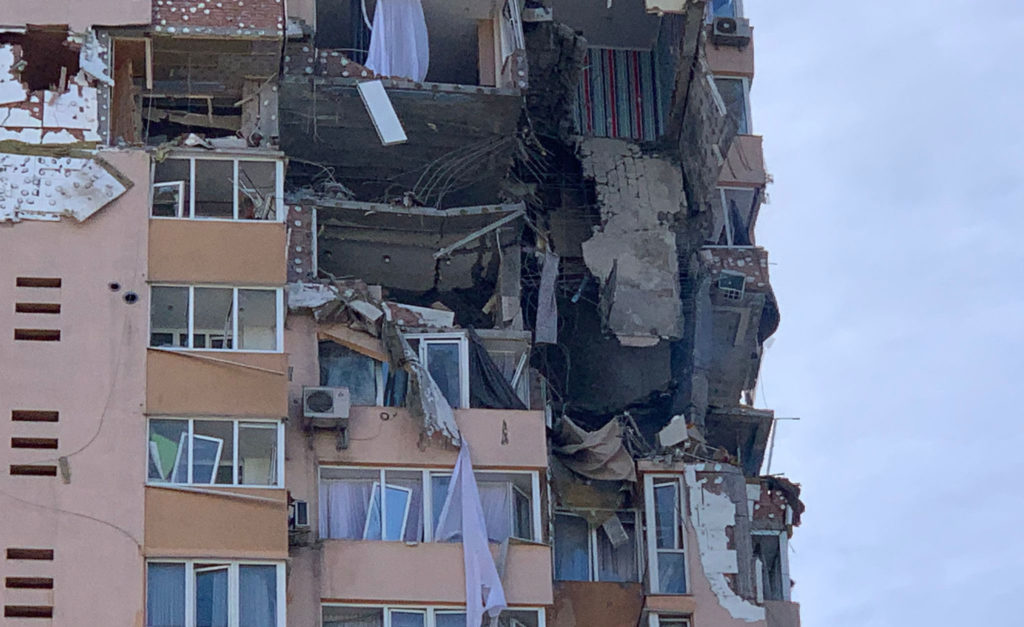
Kyiv’s mayor, Vitali Klitschko, recently extended the city’s curfew, which took effect from 5:00 p.m. local time on Saturday and will now run until Monday morning, at least. In some ways, the curfew wasn’t necessary because the roads are empty of cars and there’s nobody out on the streets. But deep underground in the city’s metro network, there are tens of thousands of families — women, children, the elderly, the infirm — sheltering from the violence up above. People have brought what belongings they could, clothes, blankets, food and thermoses, even their pets, and are camped out in the corridors of the metro, staying warm in winter coats, boots and hats.
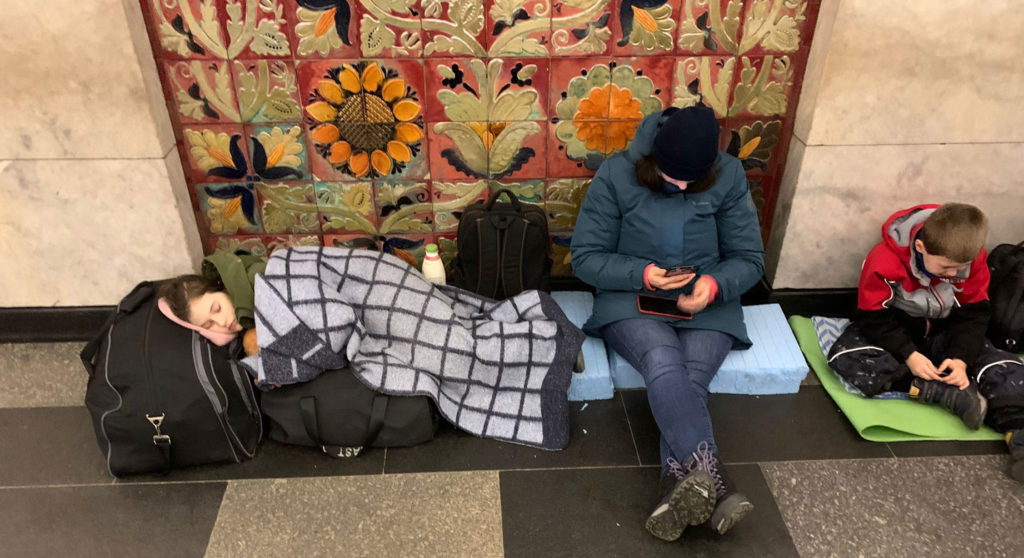
Everyone we spoke with in the metro stations said they are scared; they are uncertain what the future holds, how long they can or will have to hide underground, and what they will find when they return to the streets. We spoke to one man who was drunk: It was his birthday, and he wanted us to know that.
“I thank you for coming to Ukraine,” he said.
Speaking to residents of the city over the last couple of days, people expressed gratitude that in this time of horror, of abject fear and despair, at least they are not alone.
The West introduced severe sanctions on Russia’s banks, cut access to Western technology and most recently imposed sanctions on Putin, Sergei Lavrov, Russia’s foreign minister, members of the Security Council, along with some oligarchs and their family members who were targeted in the first round of sanctions issued on Tuesday.
Military and humanitarian aid has also been sent to the country; the Biden administration has approved $350 million in military aid. But there will be no boots on the ground.
In some of the residential neighborhoods north of Kyiv where fighting has been heaviest, I saw old and young men, from different socioeconomic backgrounds gathering to arm themselves, organize people’s militias to defend their street corners, their squares, their town centers.
It’s clear the military support has yet to reach them: They are armed with nothing but old, Soviet-manufactured rifles and lack basic military equipment, like helmets and body armor, to protect themselves. They only have colored arm bands to indicate they are part of the volunteer militia.
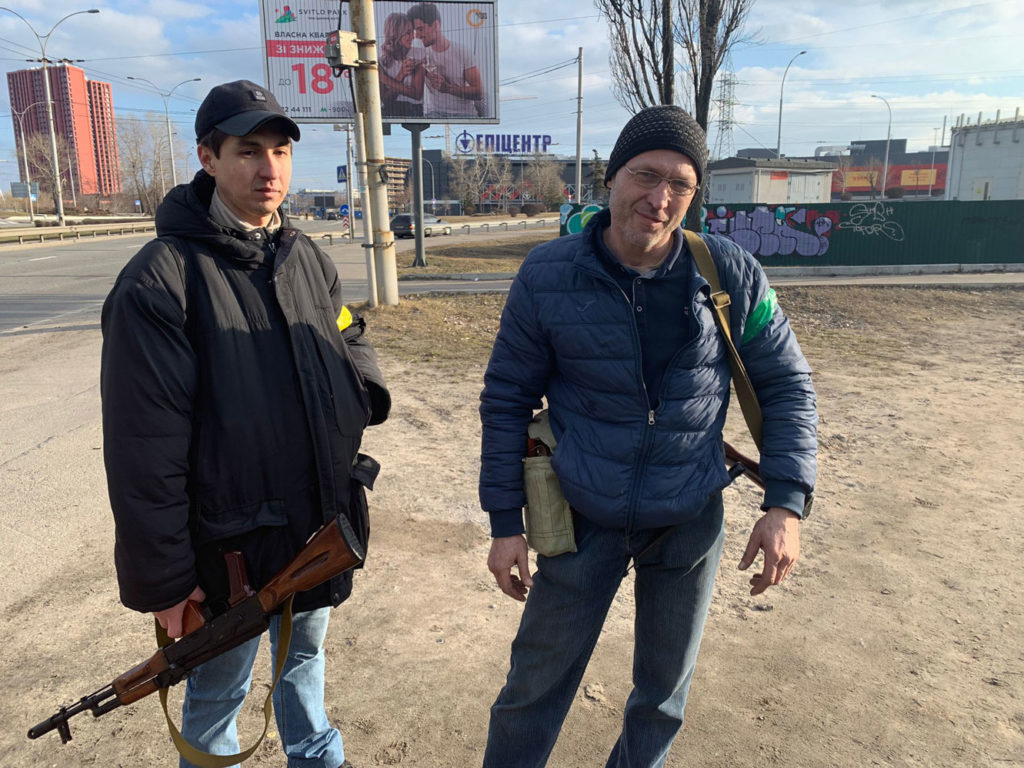
Still, they remain steadfast in their determination. “We are not fighters,” they said. “But what choice do we have?”
They are not alone, either. Ukrainian politicians have taken up arms and are ready to fight alongside their compatriots. Klitschko is armed and on the streets, as is former president Petro Poroshenko. Earlier today I met 26-year-old Sviatoslav Yurash, Ukraine’s youngest parliamentarian, who is also on the streets and ready to fight.
Tall, with a slight frame, and wearing a black Vyshyvanka (an embroidered shirt) and designer sunglasses, he looks more like an art student than a militant, but this invasion has changed outcomes for everyone, even members of Parliament.
“I’m staying here because for our nation this is a struggle for our very existence,” Yurash explained. “We don’t have a choice here. We must stay, we must fight.”
It’s clear this city will not fall without a brutal fight.
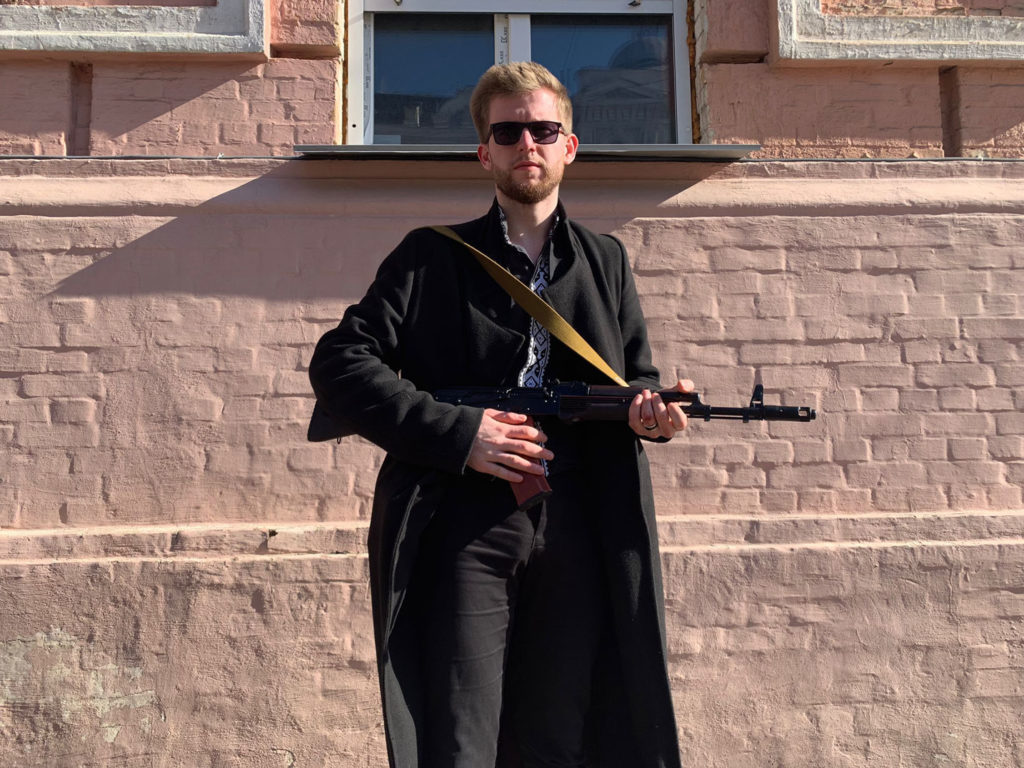
While the country is only three days into a war that was thrust upon them, with the Russian military bearing down on the capital city, the resolution and defiance of the Ukrainian people is apparent on every street corner. Volunteers have set up positions to hold the line against the better-equipped Russian invaders. It’s impossible to look around and not empathize with their struggle. Though to win this battle, far more than empathy is needed.
Sign up to our mailing list to receive our stories in your inbox.



